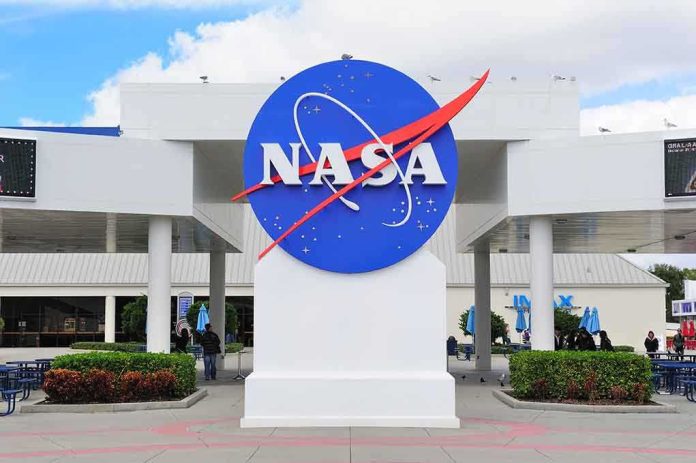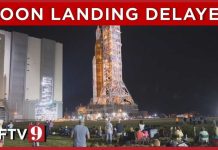
NASA’s sweeping ban on Chinese nationals—even those with valid U.S. visas—from all space programs and facilities signals a decisive escalation in America’s efforts to safeguard its technological leadership and national security from foreign threats.
Story Highlights
- NASA blocks all Chinese citizens from participating in its space initiatives, regardless of visa status, citing security concerns.
- The ban comes amid intensifying U.S.-China competition, framed as a modern-day “second space race.”
- Hundreds of Chinese scientists are immediately excluded from NASA collaborations and facilities.
- Experts and lawmakers stress the move is vital to protect sensitive technology and American strategic interests.
NASA’s Ban: A New Era of Security-Driven Space Policy
On September 11, 2025, NASA announced a comprehensive ban on Chinese nationals, including those legally residing in the U.S., from all agency programs, facilities, and networks. This follows the September 5 lockout of Chinese workers from NASA IT systems and meetings, marking a decisive shift from earlier, more limited restrictions. The ban is justified as necessary to protect sensitive technology and American leadership in space, especially as both the U.S. and China accelerate their respective lunar ambitions. Lawmakers and NASA officials cite the growing risk of technology transfer and espionage.
This action builds on the 2011 Wolf Amendment, which barred NASA from bilateral cooperation with China but allowed for vetted exceptions. Now, even Chinese citizens with valid U.S. visas are barred, reflecting heightened suspicion amid ongoing U.S.-China tensions. Both countries are racing towards crewed lunar missions—America’s Artemis program aims to return astronauts to the moon by 2027, while China targets 2030. Proposals for lunar nuclear power plants by both nations have further amplified strategic anxieties, with U.S. lawmakers pressing for urgent action to maintain dominance on the lunar frontier.
Political Imperatives and Stakeholder Motivations
NASA’s leadership, acting under the direction of the Trump administration and with vocal congressional support, defends the ban as essential for national security. Agency officials emphasize the need to prevent foreign access to cutting-edge research and infrastructure. Lawmakers, including Senator Ted Cruz, frame the restriction as a patriotic safeguard against Chinese advances that could threaten U.S. interests. The Chinese government, for its part, continues to pursue its own lunar projects and technological milestones, setting the stage for a polarized and competitive global space environment.
The ban’s broad scope means Chinese scientists and engineers—many of whom sought legitimate research opportunities—are now locked out of participation. U.S. research teams with Chinese collaborators face sudden project disruptions. The move cements a dynamic in which the U.S. government and NASA exert full authority over access to American space infrastructure, regardless of individual credentials or vetting, while Chinese nationals are left with little recourse.
Immediate and Long-Term Impacts: Security vs. Scientific Openness
The immediate effect is the exclusion of hundreds of Chinese scientists from NASA research, facilities, and joint projects. NASA confirms that this lockout extends to all digital and physical access, underscoring the seriousness of the policy. While many security experts and lawmakers argue this is a prudent step to counter foreign espionage and safeguard American innovation, others warn of risks to scientific openness. Academic leaders and legal scholars point out that blanket bans may stifle international collaboration and drive away global talent, potentially harming America’s research ecosystem in the long run.
Long-term, the decision is expected to intensify U.S.-China space rivalry and could provoke reciprocal restrictions by China, further fragmenting the global scientific community. The move aligns with broader trends of technological “decoupling” and increased scrutiny of foreign nationals in high-tech sectors, reinforcing conservative calls for vigilance and robust national security policies. For many, the ban represents a victory for prioritizing American interests, even as debate continues over the balance between protection and progress.
Expert Perspectives: National Security or Isolation?
Industry and policy experts largely support the ban as an overdue response to espionage risks and strategic competition. UPI, LNGFRM, and Universe Magazine all confirm the ban’s comprehensive nature and the rationale offered by NASA and lawmakers. However, some space policy analysts and academic voices express concern that such an all-encompassing approach may erode the openness that drives scientific advancement. They caution that isolating American research from international talent pools could ultimately undermine the U.S.’s long-term leadership in space innovation. Nevertheless, the consensus across credible reporting is clear: in the current geopolitical climate, security imperatives are taking precedence.
Sources:
NASA bans Chinese nationals from working on programs at facilities
NASA blocks Chinese scientists from programs
NASA blocks Chinese citizens from participating in its projects














